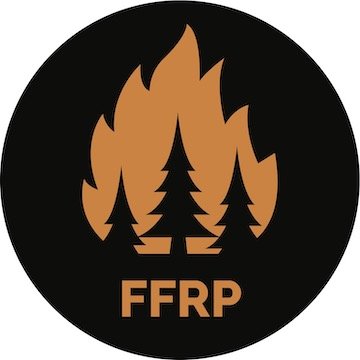Partner Profile | Forestry and Fire Recruitment Program


By educating people on the value of this work when the fires start to burn and training them in different areas to do preventative work, they’re not only provided a chance to find a career pathway but also an opportunity to be a part of the solution to some of these challenges.
Written by: Jessica Alvarez, Communications & Content Manager
The Forestry and Fire Recruitment Program (FFRP) is a nonprofit organization that provides career support to formerly incarcerated firefighters, and those currently incarcerated in California’s Conservation (Fire) Camps, who are interested in careers in the Wildland Firefighting and Forestry sector. Its mission is to increase wildfire personnel from non-traditional and underrepresented communities, providing them the training, skills, resources, and experiences needed to secure gainful employment.
While FFRP is the first community-based solution of its kind in California, they believe that this is a model that Californians and beyond can adopt to fight climate change and create more climate-resilient communities. “We don’t have to wait for the government or the state or the budget or any of those things,” said FFRP Chief Operations and Finance Officer, Sara Sindija. “We can protect ourselves and we can protect our land; we’ve got the skills to do it.”
The organization incorporated in 2018 but started informally in 2015 by founders Brandon Smith and Royal Ramey, two individuals who made a successful transition from “Fire Camp” to professional careers. What they found was that the difference between themselves and others who were interested, but may not have made the jump, was that they had a really strong network; they had family, friends, and financial support.
“A lot of people don’t have that luxury when they come home,” explained Sindija. “They’re trying to get on their feet and it’s really hard to navigate this pathway if you don’t have somebody showing you how to do it.” Smith and Ramey found that once they made the transition, they not only met other people who were interested, but they were often working alongside people that felt inspired seeing them in uniform and were surprised that they’d been able to figure it out.
The two helped roughly 40 people in the first three years and then decided to formalize the model. “There are tens of thousands of people who have gone through the camp system in the last 10 years and the number one reason for recidivism is joblessness,” said Sindija.
While every individual’s journey is different and firefighter hiring is seasonal, the typical duration of individuals in the program is about five to eight months. Once they “come home,” they are set up with a case manager, provided basic support for things like getting a driver’s license, insurance, housing, etc. If the individual still shows interest and a commitment to doing this type of firefighting work, then they are provided basic classes and training and then they begin their Career Training Program (CTP), which is a six month program.
To date, FFRP has helped over 140 people transition of which at least 76 are still working in the field. Others have transitioned into related sectors like Caltrans or the timber industry.
Last month, FFRP was one of three winners of the Verizon Climate Resilience Prize in the frontline community-based solutions category. “We meet at the unique intersection of so many different areas,” explained Smith. “What we are trying to solve is an environmental problem, a climate change problem, a criminal justice challenge, a workforce development challenge, and now also an equity challenge as we try to bring in more women and women of color into a sector that is majority men.” He said that the first year they had two women, last year they had three, and currently they have five or six.
FFRP and Blue Forest are currently exploring the possibility of working together to build capacity around some of the forest restoration work we are doing in California. By educating people on the value of this work when the fires start to burn and training them in different areas to do preventative work, they’re not only provided a chance to find a career pathway but also an opportunity to be a part of the solution to some of these challenges. We look forward to collaborating with FFRP in the near future!